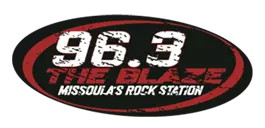
UM Furloughs 63 Employees – Bodnar Donates Part of Salary
The University of Montana has furloughed 63 employees due to the COVID 19 virus and its complications throughout the education system.
President Seth Bodnar issued this email to the staff of the university on Monday:
‘Colleagues,
As I shared last week, the historic COVID-19 pandemic will have not only short-term implications for our University but also impacts that will persist long after the current crisis subsides. All along, our primary objectives have been — and will continue to be — to place the health and safety of our UM family first while doing everything we can to ensure our students are able to continue making progress in their academic programs. Meeting these objectives has required us to adapt quickly, to radically alter our campus operations and to make some difficult decisions. Navigating these decisions necessitates thoughtful, sober analysis, as well as straightforward, honest communication.
In that spirit, I write today to let you know that we have made the difficult decision to notify 63 of our colleagues that they will be temporarily furloughed until Aug. 1. They serve primarily in our auxiliary operations, which have been most impacted in the wake of the COVID-19 pandemic. These are colleagues who embody the spirit of placing students at the center of all we do and who deserve our collective gratitude. Each furloughed individual was given a month’s notice and will continue to receive University benefits — including medical insurance — and will maintain their employment status during the period of furlough. Each will have access to unemployment benefits, and, as soon as we are able, we will work to have our colleagues rejoin us on campus.
We did not make this decision lightly. Our leadership team is working exceptionally hard to ensure as many colleagues as possible continue working. At the same time, we acknowledge the financial challenges this situation already presents and will continue to create. As you may be aware, our Human Resources Services team recently developed the Employee Exchange to facilitate matching employees whose work is on hold to areas of campus where there is additional need. We also are looking broadly across the University to identify project-based work that can be done now, while the campus population is at a minimum, to keep as many employees as possible gainfully employed.
Over the past month, however, we have had to make dramatic changes to our operations to prioritize the health and safety of the UM family. As you can imagine, these decisions have created significant financial strain as we have canceled events, issued refunds for housing and dining, and halted the numerous activities that typically happen on our campus this time of year. Nowhere have these impacts been felt more acutely than in our auxiliary operations.
I acknowledge that no rationale or expression of gratitude erases the hardship this decision creates for our impacted colleagues. These are challenging times, both for our colleagues across campus and for our students, and there will no doubt be difficult days and tough decisions ahead.
As a UM family and broader community, this is a time for us to find ways to help lighten the heavy burden others carry. My wife, Chelsea, and I have decided to donate 25 percent of my salary for this year back to the University. Other members of the University’s senior leadership team also have chosen to donate a portion of their salaries. While this certainly will not solve all of the challenges we face, we cannot continually talk about the importance of the UM family without being willing to help those whom this crisis has profoundly impacted.
While no president wants to be the author of this type of message, I wanted to provide the UM family with a personal explanation of the actions we are taking, the reasons behind them and the efforts we are making to support our community during this challenging time.
Seth’
In the message, it was noted that President Bodnar was donating 25 percent of his yearly salary back to the University of Montana. In addition, the furloughs affect primarily employees in auxiliary operations, which depend largely on students being physically present on the campus and that the furloughs are only in effect until August 1.
UM has been engaged in distance learning since the end of spring break in March.

